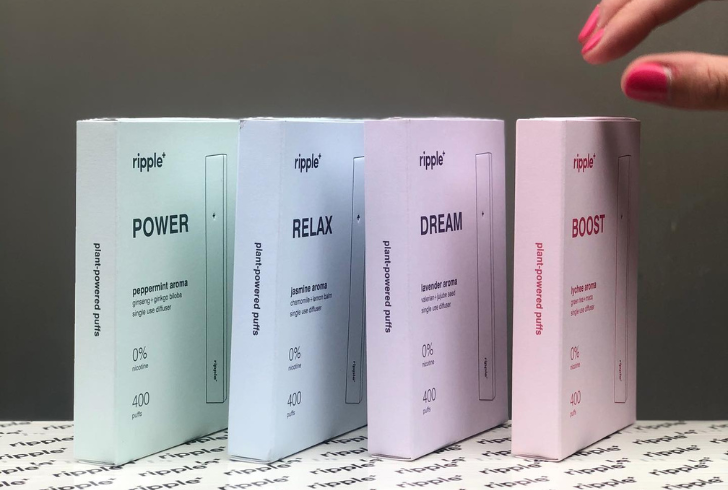The world of vaping is shrouded in a mist of uncertainty, with new products emerging constantly. Ripple vape carves a niche for itself by offering a nicotine-free, all-natural alternative. But with enticing flavors and bold claims, a crucial question lingers: is Ripple vape safe for lungs?
Let’s delve into the ingredients, explore user experiences, and uncover the science behind this trendy vape.
Understanding Ripple Vape’s Composition

Ripple vape prides itself on using all-natural ingredients, boasting a variety of flavors like Jasmine, Mango/Sage, and Blueberry. These enticing options are designed to deliver a satisfying experience, minus the addictive punch of nicotine. While the lack of nicotine is a plus, it’s important to remember that “natural” doesn’t always equate to safe for your lungs.
The base of Ripple vape liquid typically consists of vegetable glycerin (VG) and propylene glycol (PG). While VG is generally considered safer than inhaling cigarette smoke, the long-term effects of inhaling these substances, especially when heated, are still under investigation. Additionally, Ripple’s flavorings might contain unknown ingredients that could potentially irritate the lungs.
User Experiences and Reported Effects
Many Ripple vape users rave about the delightful flavors and the absence of harsh chemicals compared to traditional nicotine vapes. However, some users have reported encountering less desirable effects, including:
- A burning sensation on the lips
- Respiratory issues like bronchitis
- Euphoric sensory experiences
It’s important to note that vaping in general, including Ripple vapes, can potentially have negative effects on mental health. A study published in the Journal of Adolescent Health suggests a link between vaping and increased anxiety levels.
Ripple vs. Traditional Nicotine Vapes

If you’re contemplating a switch from your usual nicotine vape, Ripple+ might seem like a tempting option. Here’s a breakdown to help you decide:
- Pros: No nicotine, diverse flavor options, focus on natural ingredients
- Cons: Lack of official health evaluations, potential for negative side effects, unknown long-term effects
While Ripple offers a nicotine-free alternative, the company doesn’t make any claims about health benefits. Their products haven’t been evaluated by health agencies like the FDA. Ultimately, the decision to switch from a nicotine vape to Ripple hinges on a personal evaluation of the pros and cons, alongside consulting with a healthcare professional.
Ripple’s Commitment to Sustainability and Customer Service
Ripple’s dedication goes beyond just the vaping experience. They prioritize environmental responsibility through their recycling program, allowing users to dispose of used pods and disposables responsibly. This commitment to sustainability resonates with eco-conscious consumers looking to minimize their environmental footprint.
Furthermore, Ripple prides itself on regulatory compliance and customer service. They actively engage with customer feedback and encourage users to stay updated on local vaping laws. This transparency fosters trust and empowers users to make informed decisions.
The Final Verdict – Is Ripple Vape Safe for Lungs?

The question is ripple vape safe for lungs doesn’t have a definitive answer at this point. While the lack of nicotine is a positive step, the long-term effects of inhaling any foreign substance, including VG and PG, remain under investigation.
Ripple’s focus on natural ingredients and user satisfaction is commendable. However, consulting a healthcare professional is vital before embarking on a Ripple vape journey. They can provide personalized insights based on your individual health and medical history. Remember, prioritizing your lung health is paramount.





